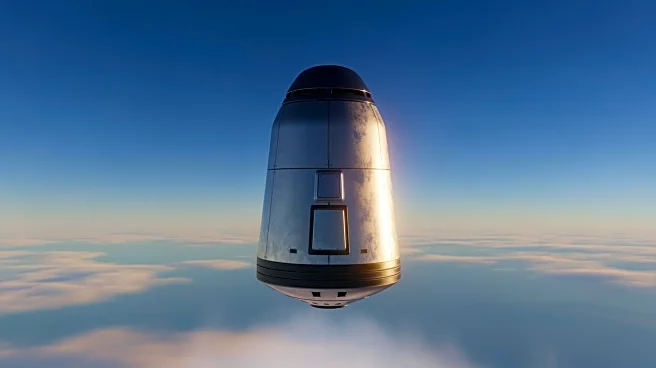What's Happening?
The crew of the Shenzhou-20 mission has returned to Earth after a record 204-day stay at the Tiangong space station. The mission, which launched on April 24, was initially scheduled to conclude on November 5, but was delayed due to damage to the reentry
capsule, likely caused by space debris. The crew, consisting of taikonauts Chen Dong, Wang Jie, and Chen Zhongrui, returned using the backup capsule of the Shenzhou-21 spacecraft. The Shenzhou-21 detached from Tiangong on November 14, and the capsule landed safely in Inner Mongolia. This mission marks the ninth visit to the Tiangong station and the fifteenth Chinese manned flight.
Why It's Important?
The successful return of the Shenzhou-20 crew highlights China's growing capabilities in long-duration space missions. The extended stay at Tiangong demonstrates the resilience and adaptability of China's space program, as well as its ability to manage unforeseen challenges such as space debris. The mission's completion reinforces China's commitment to maintaining a permanent presence in space and advancing its technological prowess. The incident underscores the importance of safety measures and contingency planning in space exploration, prompting considerations for improved debris monitoring and spacecraft design.














